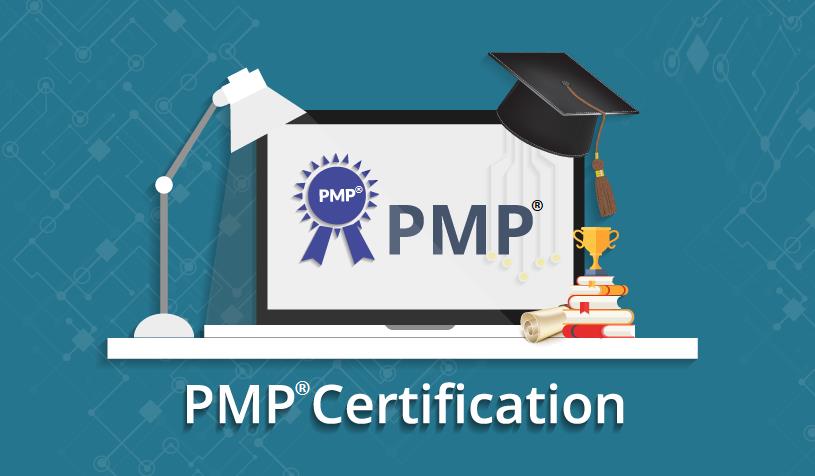How to Study for PMP Exam and Pass? Working Professional Learning Plan (6 Steps)
Published:
Updated:

The PMP management Program is a degree program offered by the Project Management Institute. It is a world-renowned and highly prestigious certification for those who like to overcome obstacles and achieve their goals. According to a PWC study, PMP accredited managers manage tasks more efficiently than other administrators, whether or not they are certified. PMI also credentials the certification with gold standard since the courses are based on the organizations' best practices and objectives.
This is why the certification is coveted by most working professionals, especially those in the project management domain.
While the certification brings many benefits to the project management professionals, some assumptions are listed with online PMP certification that are seen as disadvantages. In contrast to other assessments and certifications, it is perceived as one of the most demanding tests they've ever had because it takes time to plan, prepare and pass. The prestige of this credential is indeed an uncompromising quality that asks for perseverance and persistence.
Along with that, hard work, sound research, and preparation help to taste the ultimate sweet fruit.
How can working professionals put a plan together to study and clear the PMP exam?
As a working professional to appear for PMP certification, you require 36 months(3 years) of experience leading projects after you have completed a four year degree. You need 60 months (5 years) of project experience if you do not have this education history standard.
Additionally, 35 contact hours of formal project management training are needed.
What is the PMP Test?
The Knowledge Project Management Organization has the right to establish the test certificates according to each industry standard. The percentages decide the weight of each field mentioned in the online PMP certification examination. In this review, there are 180 questions with multiple choices covering five areas, and 25 are not included in the final ranking. The sample question serves to increase the examination level. The aspirant cannot, however, get any hint as the questions are randomly put. Furthermore, no reference information will be available to the claimant during the examination.
The claimant could appear on a computer or paper on its location for examination. The PMP assessment does not only test applicants' interpretation of principles but also the realistic use of the five success pillars -
- Initiating the Project
- Planning
- Executing
- Monitoring and Controlling
- Closing the Project

How to prepare for PMP Exam?
While planning for PMP exam prep, a few students only require 15 days to chart and clear the test, while others will prepare it for the entire year. It depends on the student's experience in project management, availability, and commitment to the test. As most applicants are working professionals, they must draw a research schedule while utilizing holidays or weekends.
Further ahead, we are going to help you with laying down the correct plan that ensures victory.
PMP Study Plan that Will Lead to Your Professional Success
The answer to the question, "what is this PMP research plan?" is not a clear-cut solution.
The vast majority of professionals aspiring for PMP qualification expect a ready reference list and, once they comply, they expect to pass the PMP certification exam at the first attempt. Most PMP websites, training providers, and other platforms state that if you adopt the PMP exam prep schedule, they can ensure that you get your PMP certification on the first try.
While the chances of passing the PMP exam are improved with a healthy PMP study guide, the 100% guarantee on PMP results comes with the proper PMP training with the right PMI ATP where value-adding PMP exam prep is offered.
Now, let us take you through a structured plan that you need as a working professional to clear the PMP certification exam.
Identify Your Target and Make a Goal
To be effective, you must first decide on an achievable goal. Determine if you are going to sit on the PMP test. It is the first phase in the PMP exam prep plan of research. Only mark a date you are ready for the PMP test. Much of this depends on the calendar, affordability, and commitment, so we suggest a permanent full-time worker prepare for PMP for at least 3-4 months.
Since standard PMP training requires 35 hours of training in project management, you spend more time testing, passing notes, recalling formulas, and passing unclear sections that you were not able to grasp well on your first try, etc.
Therefore, it takes between 70-85 hours for regular PMP training. If you think you should only research during the nights, the weekends, and public holidays, we believe you can spare about six hours per week for PMP study. It takes an average of 12-14 weeks to prepare.
Make a Proper Study Timetable for Fruitful PMP Exam Prep
You should schedule 6 hours a week according to your timetable. For example, you can study for 2 hours on Monday, Wednesday, and Sunday. You should replace the Sunday analysis with Thursday if you want to leave the weekend free. The days you prep for the PMP certification exam are subject to changes from week to week but aim to maintain a minimum of 6 hours of study per week.
You can have long vacations or special days ahead on which you cannot study. You may be planning a long weekend or holiday for your friends, families, or family. Plan your PMP research schedule for these open weeks.
Collect References and PMP Notes
Throughout the PMP Training, there are several principles, PMP formulas, clues. Print the handouts and take notes during your PMP analysis before beginning to lecture. Take notes, in particular where you can find practical knowledge. These notes are helpful once you have completed the course. In the last weeks of training, you will read the notes and recall previous lectures that you already have completed.
Believe in Practicing the Questions
Most aspirants to the PMP qualification search for free PMP site questions. However, most of these tests may be old, offering false answers or justifications. Free PMP certification exam materials lack the full PMP examination content and mislead you during your PMP analysis. Be vigilant, therefore, when using a free PMP material during your PMP analysis. Our online PMP training involves 750 questions of instruction, section quizzes at the end of every section, and an efficient PMP review.
Mark your responses to see how you can collect more than 70% of each test. Sample the PMP test during the PMP analysis. Our advice is that if you can collect more than 70 percent of PMP Training and PMP Exam Simulator exams from tests and sample exams, you can also pass the Real PMP Exam.
Identify Your Previous Mistakes
After the PMP thesis is done, go to the wrong answers you selected during the tests and sample PMP examinations. The misrepresentations demonstrate your faults. In particular, go over the places where you have made the most mistakes. This will help you to better your reasoning and analysis skills. In the longer run, it will equip you to be a better project manager. If you plan meticulously with dedication, there is no reason that you cannot pass your PMP certification on the first try.
Go Through All Your Notes Again
The main thing to keep your mind primed for the online PMP certification test is to keep going through your notes. As you get to the parts ahead, it could be harder to recall the sections you finished earlier. The easiest way to memorize what you read in the PMP analysis is to keep your notes handy for ready reference on the go. You could do this in the small breaks during your work hours.

Signing Off...
Before we take your leave, we would like to reiterate that PMP preparedness is a wholesome journey. The more you go deeper into the study plans and structures, the better you become, professionally and personally. It is just like pivoting yourself to take up the more unexplored role.
If you need any help with PMP exam prep, we are here, and we are listening!

